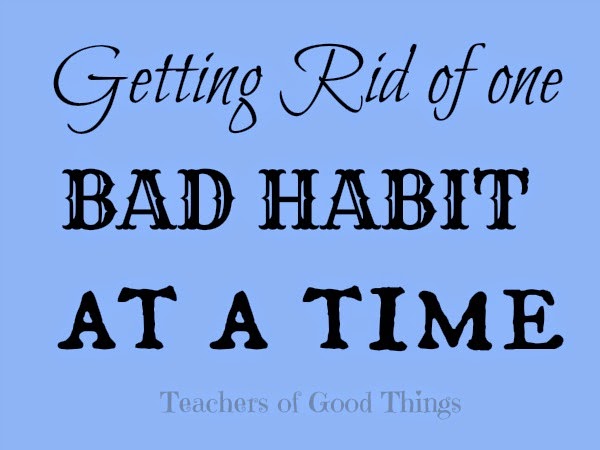I've got a question for you: Who decides if a habit is good or bad? You, your partner, your parents or boss? Perhaps the behaviour started out as serving a particular purpose but is no longer useful. But you keep on doing it anyway - out of habit. I'll tell you a story about a habit I developed over a number of years and how it changed from something I enjoyed and thought of as positive to something considered a health risk. While I was employed in a small community legal service, a work colleague would always have a Coke Zero for morning tea and lunch. She brought them along daily and kept them in a small cooler bag in her office. I was keen to get to know this lady better with the view of forming a friendship. At this time, I did not drink any type of soft drink, let alone Coke. In particular, I though Coke tasted awful. One morning when Rose invited me to join her for a Coke Zero I eagerly accepted the drink and we spent a delightful 15 minutes together. Over time, sharing a Coke over morning tea developed into a work ritual. We became close friends and I became addicted to the diet soda.
A couple of years later after, I finished work at that organisation, I still had a Coke Zero every morning -purchasing them in bulk at the local supermarket. I figured, it was a good choice as Coke Zero is supposedly better for you than other soda drinks since it was diet friendly. My husband, then pointed out, that while it does not contain any calories, fat, carbohydrates, cholesterol or sugars, it also provides no nutritional benefits. He had also heard on a health report that
- Diet soda messes up your metabolism, boosts your risk for diabetes and heart disease and even doubles your risk for metabolic syndrome.
- Dr. Oz cited studies showing drinking diet soda is linked to higher rates of depression and larger waistlines.
- A Harvard study showed diet sodas caused a decline in kidney function due to the diet sweeteners.
- It can rot teeth and destroy teeth enamel due to being acidic in nature.
- Diet sodas also contain chemical substances which can cause cell damage.
Bummer. Time for me to reassess the usefulness of this particular; habit.
So how long does it take to form a new habit? One that does not involve Coke Zero in my case. I looked for an answer from my good friend Google. This search suggested the answer was clear-cut with the top results making reference to a magic figure of 21 days. These websites maintained that “research” had found that if you repeated a behavior every day for 21 days, then you would have established a brand-new habit. Going to the gym, eliminating chocolate from your diet to getting up earlier - you name it, 21 days is the answer. In addition, many authors recommend that it’s crucial to maintain a chain of 21 days without breaking it. Read more at Beliefnet.com
The reality is, habits are easier to make than they are to break. If you repeat a behavior often enough, those synaptic pathways are going to get worn in, like hallway carpet. However, breaking a habit is a lot more complicated, because while parts of those worn-in pathways can weaken without use, they never go away [source: Rae-Dupree]. They can be reactivated with the slightest provocation [source: Delude]. If you've ever tried to quit smoking, you already know this. You can go a year without a cigarette, and then give in one time and BAM, the habit comes right back. See more at Science: how stuff works
So 3 weeks ago I decided to take up the challenge and see if I could give up my Coke Zero addiction as part of my get fit and healthy campaign for 2014 ( see my blog on Resolution: Evolution). The following tips helped me abstain for the duration of 21 days straight. I hope they can help you to increase your chances of success in your endeavor to change a habit. They include:
- Take small steps. Don't try to do everything at once. (So, instead of "I'm going to exercise every day," start with "I'm going to exercise twice a week.")
- Only try to change one habit at a time. (Instead of "I'm going to quit eating junk food, start exercising, and go to sleep at 10 p.m. instead of 2 a.m.," start with "I'm going to quit eating junk food.")
- Write down the habit you want to change, and write down specific plans for achieving that goal. (Rather than writing "I will exercise," write, "I will start walking 30 minutes twice a week, on Monday and Thursday, and I will wake up at 7 a.m., so I can walk before work on those days.")
- Repeat the behavior you're aiming for as often as you can. The more a behavior is repeated, the more likely it is that it will become "instinctive."
[source: Newby-Clark]
- Use the 3 D's Technique - Delay giving into the craving, Distract by doing something different to occupy your thoughts, Decide not to give in to the unhealthy habit by thinking of all the advantages of not doing it and the reasons you want to stop.
Well, I can say that I am am Coke Zero free and thankfully it was not too difficult. I think one of the things that worked in my favour was going bush ( and I'm talking remote high country with no showers let alone shops) for 7 days at the outset.
What habit are you trying to make or break? I would be honoured if you could share your story with me.





No comments:
Post a Comment